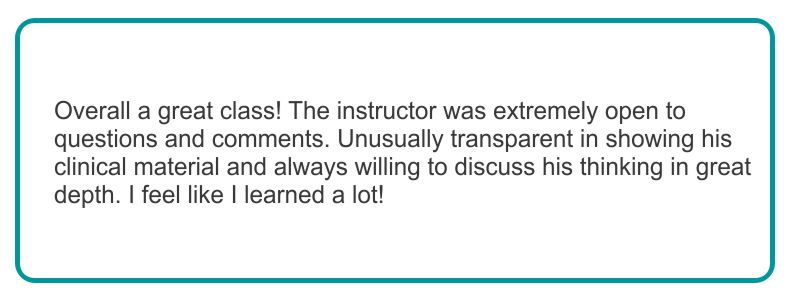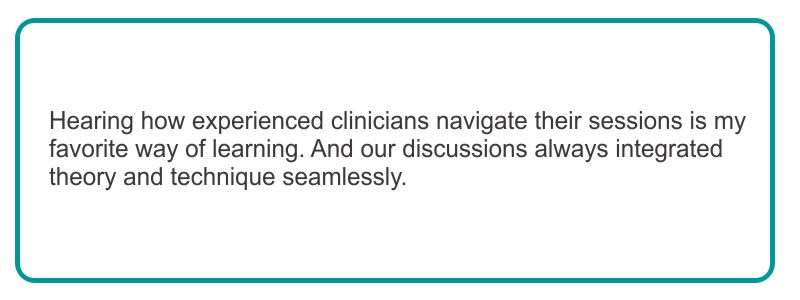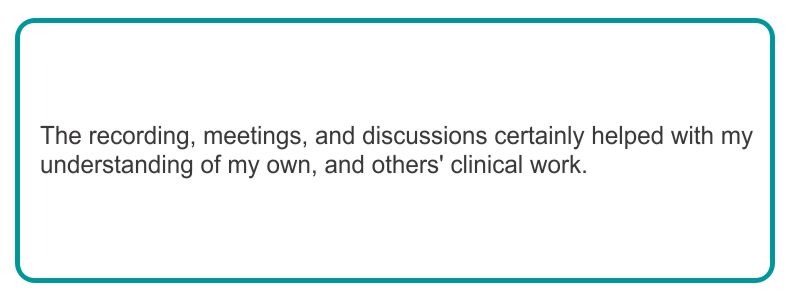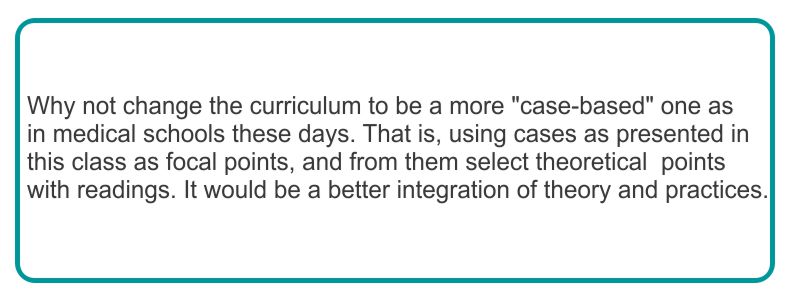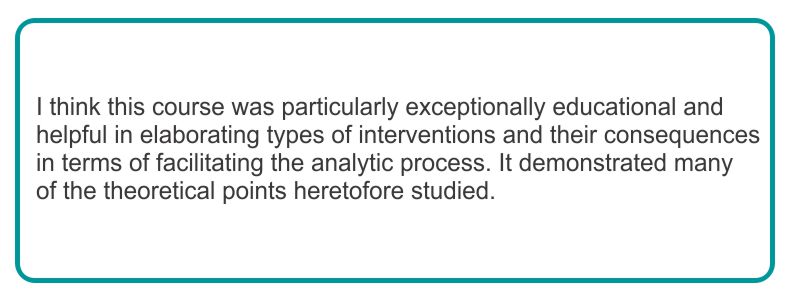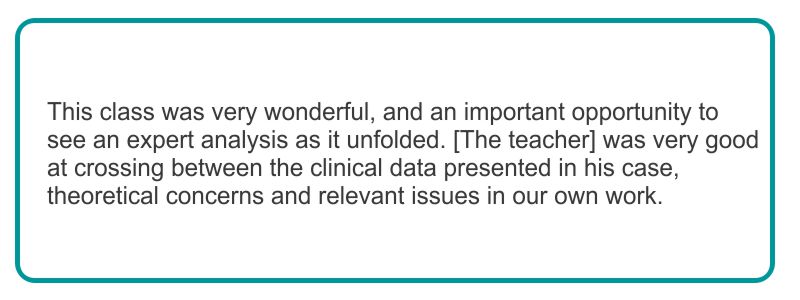Welcome to the website of the
Psychoanalytic Research Consortium!
GREETINGS FROM THE CHAIR
When I first discovered in college how many perspectives on human life were possible I was most taken by psychoanalytic writings about what went on below the surface of the human mind. Powerful concerns leading me in this direction were the troubles of a family member, and I was lucky enough to be in a program spanning psychology, sociology, anthropology, and statistics.
I ended up going into psychotherapy for myself and found it progressively helpful as I stuck to it. Yet when I studied the publically available information about the efficacy of long-term psychotherapy and psychoanalysis, I realized how incomplete the data were. The lack of such evidence diminished social support for long-term treatment, and therefore many people who needed it didn’t receive it.
So over 30 years ago, early in my career as a psychiatrist, I started devoting half my time to practice and the other half to research. NIMH supported an investigation of the impact in adult life of neurotic symptoms in childhood, a study I performed while learning to be a psychoanalyst.
Soon thereafter I realized the pressing need for close study of long-term psychotherapy and psychoanalysis to understand under what therapeutic conditions patients got better — what led to improvement and what did not.
To address the situation I led the establishment of the Psychoanalytic Research Consortium over 30 years ago, with support from the Committee on Scientific Activities of the American Psychoanalytic Association. I enlisted colleagues to join me in a small organization, and in the course of these few decades we have accumulated the largest collection of recorded psychoanalyses and long-term psychotherapies available.
Whether you are a student of psychotherapy, an experienced therapist, a researcher, an individual suffering from psychological problems or simply an interested observer, we hope you will find useful insights on our website.
Sherwood (Woody) Waldron
What PRC Board Members Have to Say
For Education, Case-Based Learning:
We have found that using recordings of cases is an excellent way of conveying core issues of psychotherapy practice. As an example we offer on this web site a clinical case study of the successful treatment of “Annie”. We explore the first four sessions in great depth as a jumping off point for describing the components of psychotherapy, illustrated by our case-based PRC Psychotherapy Manual.
There are three parts to the learning experience we offer:
1. Clinical Material: The text of the first four sessions of the case of “Annie”, with re-creation by actors who have listened to the original recordings, accompanied by identification of types of therapist contributions, and interspersed with comments by experienced clinicians. Click here.
2. Case Study of this material using methods developed over decades. Click here.
3. Description of how psychotherapy works, including introduction to its history, beginning the treatment, development of the relationship, and description of the components of psychotherapeutic technique. Click here.
We hope that this combination of perspectives will give the reader a better understanding of the therapist’s contribution to the process. So take your choice: begin by immersing yourself in the first four sessions of Annie, or examining the results of our case study, or reading our introduction to psychotherapy. Then circle back to the other parts. Whatever suits your learning style. And if you wish to delve deeper into a subject, there is often a “READ MORE” you may click on for more detail or description.
For Research, a Library of Recorded Cases:
The PRC was founded over 30 years ago to provide materials for research to improve our understanding of what works and doesn’t work in psychotherapy and psychoanalysis. Our current collection includes 81 fully recorded cases, available to qualified researchers. On this website we share what we have learned from our collective clinical experience and research on successful and less successful long-term treatments, with annotated bibliographies of our work and the work of others accessible on the References tab.
You may wish to check out the PRC history for a more detailed understanding of how the organization has developed.
Why do we focus on psychoanalysis?
Psychoanalysis is the grandparent of most therapies in use today. As a field, it has evolved since it began in the late 19th century. Many of the original insights are relevant to how a broad range of psychotherapists help patients. In several places on this website we document the evidence that the central components of psychoanalysis contribute to psychotherapeutic benefit, even at times in those types of therapy which have branched off or even repudiated the value of psychoanalytic discoveries.
Most research studies have supported the need for intensive, longer-term work to help patients overcome long-standing difficulties in how they are feeling and thinking, and how such thoughts and feelings affect how they view themselves, their relationships, their work and play, and their satisfaction and sense of meaning in life. Without longer term deeper psychotherapeutic work, including psychoanalysis, patients often improve initially, but then relapse into older, long-standing patterns of emotional difficulty.
This website is designed to inform the participant as best we can of what evidence exists about aspects of psychodynamic psychotherapy which actually work, with appropriate references to what we consider the most helpful, and scientifically sound studies available (e.g. Norcross et al. 2019; Shedler 2010; Leichsenring and Rabung 2008; Leichsenring and Leibing 2003; Wampold 2001). Of course, we cannot in this setting do justice to the broad reach of studies in the world of CBT (cognitive behavioral therapy) and the countless other variants of psychotherapy invented in these past decades, but we hope that by addressing fundamental principles, the reader will end up better equipped to judge for him- or herself.
For a more in-depth discussion of the development of psychoanalysis and the psychotherapies click here.
The State of Current Research
Members of the PRC have written the following recent publication to summarize the current state of the field of psychotherapy research and our contributions to it, and what could be the promise of future research: (Click title below for text)
Advancing Psychoanalysis and Psychotherapy through Research
by Sherwood Waldron, Francesco Gazzillo, Karl Stukenberg and Bernard Gorman
For full text, click here. For permission to reproduce this article, contact the publisher.
From the book: Axelrod, S.D., Naso, R.C., & Rosenberg, L.M. (eds.) (2018)Progress in Psychoanalysis: Envisioning the Future of the Profession. New York, NY: Routledge. Contact Routledge for permission to reprint this chapter (Routledge.com)
Comments
We thank our collaborators, and welcome further proposed comments, which can be sent to President@psychoanalyticresearch.org.
Please indicate whether you wish your name added to the list of comment contributors. If so, your initials will be added to your comment(s). We of course retain the responsibility for accepting and editing each comment.
Financial support for our website has been provided by:
Division 39 (Society for Psychoanalysis and Psychoanalytic Psychology) of the American Psychological Association, and the American Psychoanalytic Association
Psychoanalysis
(A Short Description)
Psychoanalysts starting with Sigmund Freud came to realize that so much psychic suffering is linked to feelings and experiences that, for most people, are not conscious. Freud was most famous perhaps for listening closely to his patients, in order to understand them. In particular, he suggested that it may be very important to listen for aspects of people’s experience of which they may not be so aware. This core principle is not the only one relevant today: it only provides the basis for answering the question of how the therapeutic relationship can help the patient change his/her maladaptive ways. There are other important and unique aspects of the psychoanalytic approach. Many of these focus on both discovering a hidden understanding over the course of conversations with patients, as well as a distinct kind of change in patients’ feeling understood by their therapist in the context of a unique and intimate relationship.
Studies of actual psychoanalytic psychotherapy and of another common model of treatment, cognitive-behavioral therapy, have found important overlaps between the two. In fact the originator of cognitive-behavioral therapy, Aaron Beck, began his clinical life in learning psychoanalysis, then felt that the restrictions of analytic technique taught back in the ‘70s were too limiting. Since then, both cognitive-behavioral therapy and psychoanalytic treatments of various kinds have developed to include elements of one another’s approach. The focus on how a patient’s thoughts affect their thinking and behavior in life, and how to effect meaningful and operational change, have become important for all kinds of psychotherapists.
Most recent research has shown that change is facilitated by the experiences patients have within the therapeutic hour as well as outside of it, inspired by the therapeutic work. Psychoanalytic work is focused very much on the present (i.e. experiences ‘in the room’ with the therapist) and the future in all its potential. The previous emphasis upon interpretation of the meaning of the past, which Freud began, has given way to a more subtle and complicated appreciation of the ongoing, present therapeutic relationship as an agent of change. At times and to different degrees with different patients, this will also require a deeper understanding of the past, but hopefully always with an effort to help patients meaningfully manage their emotional difficulties. This process is illustrated with commentary in _our principal extended clinical example, Click here.
Your content goes here. Edit or remove this text inline or in the module Content settings. You can also style every aspect of this content in the module Design settings and even apply custom CSS to this text in the module Advanced settings.
We have found through decades of experience in teaching that studying recorded psychotherapy cases is perhaps the most useful method of learning, because any description of what is going on in a given psychotherapy without the actual interchange can only capture a part of this highly complex human interaction, and usually only through a particular theoretical lens.
The stimulus for transforming this website into a learning experience for all came from several senior colleagues who have used the material for teaching psychotherapists around the country. Here is the detailed feedback in regard to the learning experience using our recorded materials with one of these clinicians:
Students’ Evaluation of Recorded Analyses Course
Sherwood Waldron has taught a course studying recorded clinical psychoanalytic work at the New York Psychoanalytic Society and Institute since 2005. Some 38 of 40 students found the guided exposure to clinical sessions, with explanatory comments, a very helpful learning experience. This inspired our website, which also includes clickable comments explaining what we see as helpful, or not, in the recorded remarks by the therapist. The banner to the right is a small selection from comments of these students, provided to the Institute as feedback and anonymised before being provided to the teacher.
How to categorize the therapist’s contribution to such a complex and special relationship? We describe central features of the psychotherapy process under the tab “How Psychotherapy Works”, with links to examples from our case-based PRC Psychotherapy Manual. In research use for over thirty years, the Manual provides a framework for understanding and quantifying the contributions of the therapist, the patient and their interaction to the ongoing work.
Table 1 below is discussed more fully later, but gives an idea of what components we identified in Annie’s psychotherapy.
Focus on Psychoanalysis
The cases in the PRC library are all long-term treatments. Half are categorized as psychoanalyses, adhering to a specific set of criteria, and half are psychotherapies, which differ in certain specifics but are similar in most important respects.
Research studies have supported the need for intensive, longer-term work to help patients overcome long-standing difficulties in how they are feeling and thinking, and how such thoughts and feelings affect how they view themselves, their relationships, their work and play, and their satisfaction and sense of meaning in life. Without longer term deeper psychotherapeutic work, patients often improve initially, but then relapse into older, long-standing patterns of emotional difficulty.
Psychoanalysis is the source of most therapies in use today. As a field, it has evolved since it began in the late 19th century. Many of the original insights and the ways psychoanalysis has changed and innovated are relevant to how a broad range of psychotherapists help patients. In several places on this website we document the evidence that the central discoveries of psychoanalysis contribute to psychotherapeutic benefit, even in those types of therapy which have branched off or repudiated the value of psychoanalytic discoveries.
You may wish to check out the PRC history for a more detailed understanding of how the organization has developed.







